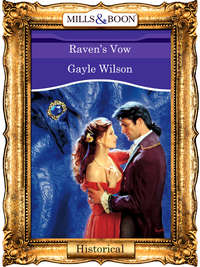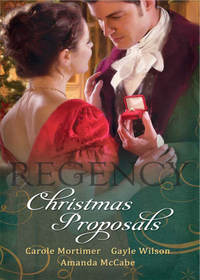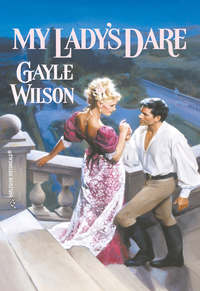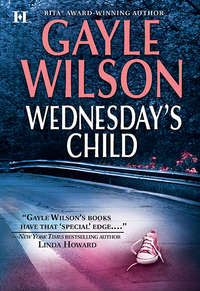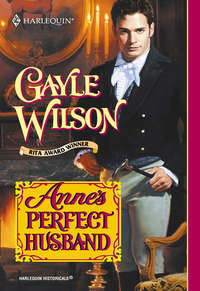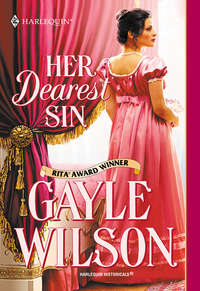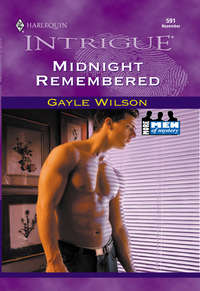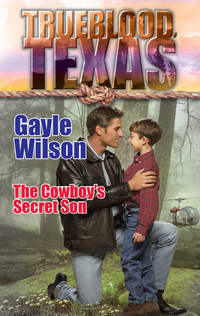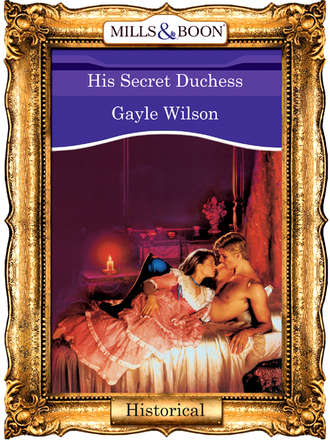
Полная версия
His Secret Duchess
“Indeed?” the chief justice said faintly.
Marcus Traywick was on his feet, the first to realize the implications of this disastrous turn of events. “Surely, my lord Justice, you don’t intend to entertain this nonsense,” he shouted. The puckered and discolored scar on his cheek had flushed with unbecoming color, almost pulsing with the force of his anger.
“Since I am unaccustomed to having my word called nonsense, I suggest that Mr. Traywick might wish to…reconsider his objection,” Vail suggested. It was clearly a warning. It was apparent that His Grace believed that no one, not even the king’s justice, would need to verify the accuracy of any claim he chose to make. Mary Winters’s mouth moved slightly, almost a smile, and then was still.
Vail was perfectly correct in his reminder that one did not challenge such a nobleman’s word with impunity. Traywick might be rich by the standards of the district, but he was a pauper compared to the Duke of Vail, and in the arenas in which this man functioned, the merchant was powerless.
“I demand to see a record of this wedding. Mary Winters has been my servant for more than six years, and this is the first I’ve heard any claim of marriage,” Tray wick blustered.
“I am not surprised,” Vail said calmly. “I so seldom discuss my affairs with provincial nobodies.
Traywick blinked. His mouth opened and closed like that of a dying fish, but it seemed he had trouble thinking of some suitable comeback for that biting comment.
“Surely, my lord Justice,” the merchant said, turning to plead his case to the judge instead, “you cannot possibly entertain the notion—”
“I give you my word as a gentleman,” Vail interrupted, “that this marriage occurred, exactly as I have stated.”
“But even so, Your Grace, I am afraid that without some existing record—” the lord chief justice began.
Vail turned his head slightly, and in response his London barrister moved from behind the duke, walking toward the table that had been set up for the justices. In his hands he carried an enormous leather-bound volume, whose age was obvious.
“If I might, my lord Chief Justice, I would be pleased to show the court the record of the marriage of His Grace, then Lord Stanton, to Mary Winters, the accused,” the lawyer said deferentially.
With the Duke of Vail standing at his back, he might well have spoken to the king himself, but his courtesy was appreciated. Here, at last, was someone skilled in according the king’s justice the deference with which he should be treated. Mollified, the judge inclined his head.
The barrister laid the book on the justices’ table, and then opened it to the last page. None of them appeared to notice when Traywick moved to peruse, as they did, the record he presented.
“And the dates?” the lord justice questioned. With one long white finger he traced the date of the entry above the marriage record in question. “How do you explain that there are more than thirty years between the previous entry and this?”
“Apparently, the vicar who officiated recorded the marriage in the older of two parish registers. Irregular, perhaps, but perfectly legal, I assure you, my lord Justice.”
“Then, if the witnesses are here present to verify—” the judge began, only to be interrupted, most respectfully interrupted, by the duke’s lawyer.
“It is unfortunate that both witnesses are now deceased, my lord Justice. Tragically deceased when their yacht sank in a storm while crossing the Channel.”
“And the priest?” the judge questioned, the first hint of doubt creeping into his tone.
“Alas, the vicar has also passed to his deserved reward.”
“How convenient,” said Traywick, his voice vicious with sarcasm. “Surely, my lord, you must see that this is all a hoax designed to trick the court Improper register, all the witnesses dead, and yet these two would lead us to believe that a true marriage took place seven years ago and has been kept a secret since. This is mere trickery, my lord,” the merchant said. “An attempt to allow this woman to escape justice.”
The judge pursed his lips, obviously swayed by the argument, but he was not given long to consider its merits.
“I would remind my lord Justice of a legal point about which he is most certainly informed,” the London lawyer said smoothly. “The entire purpose of recording marriages began as an attempt to put an end to the legal entanglements caused by the clandestine unions so frequently entered into by our ancestors.”
“Of course,” the justice agreed.
“It was found that actions brought by one party against the other in such a union tied up the court’s time, which might better be spent on more important judicial matters.”
Again the judge inclined his head in agreement. All of this was commonly known legal history, and although he was not certain of the barrister’s point, it was intellectually entertaining to find a well-informed mind in such a provincial proceeding.
“But since that is not the case in point, therefore—”
“Not the case—” The justice interrupted, having lost the thread of the argument somewhere, only to be cut off himself.
“Both parties were of legal age, and neither is denying that the marriage took place. Indeed, both will testify to this court that vows were exchanged. Therefore, there should be no impediment to the recognition of its legality.”
The lord chief justice was momentarily silenced by the logic. Everything argued was true. If, of course, both parties agreed. He turned to the accused.
“And will you so testify, Mary Winters, that the exchange of vows recorded here did indeed take place?”
Mary looked up at his question. Her eyes moved back to consider the man standing in the central aisle of the hall. The crowd was hushed in expectation. There was some emotion, some silent communication between Vail and the woman he had claimed as his wife, and then the justice found Mary Winters’s remarkably clear blue gaze focused again on his face.
“I will, my lord,” Mary said, her voice calm, despite the aura of breathless anticipation with which they had awaited her answer. An answer that was not a lie, considering the wording of the question that had been posed.
Vail drew a breath. That had been, all along, what he feared most. That Mary’s honesty would force her to deny what he had claimed.
“And you considered those vows to be binding on you both, a true marriage?” the justice continued.
There was, this time, no hesitation. “I did, my lord,” Mary Winters assented truthfully.
“Then, if the banns were read—” the judge began, relieved, only to be interrupted again by the persuasive voice of Vail’s barrister.
“I must inform you that there were no banns, my lord Justice.” He had to raise his voice to continue to speak over the murmur that resulted from that startling information. “But as you are well aware,” he went on, “it is always the priest’s prerogative, as an officer of the Archbishop of Canterbury, to grant dispensation for special causes.”
“And the special cause in this case?”
“To facilitate this marriage in order to allow His Grace’s attendance on that field of battle now commonly referred to as Waterloo. Despite having been grievously wounded during the Peninsular Campaign, he had appealed to Whitehall to recommission him so that he might assume command of his men to give support for the glorious victory of the Duke of Wellington against the Corsican monster.”
The words were carefully chosen, reminders of Vail’s role in that defeat and the cost of his unquestioned heroism in other battles, a blatant admonition that the justices should remember the distinguished military career of the man standing in appeal before them and a less-than-subtle remonstrance to their patriotism.
“Indeed,” the chief justice said faintly.
“Therefore,” the barrister went on, speaking more strongly, surer now of his audience, “you must see that, whatever action Mr. Traywick is so foolish as to try to prosecute against Her Grace, the Duchess of Vail, it should not be conducted in this court.”
“Again, I protest that this woman—” Traywick began, only to be cut off by the whiplash of Vail’s voice.
“If you profane my wife’s name with another of your vile accusations, be warned that I shall kill you.”
The gray eyes were cold and calm, but there was suddenly no doubt in Traywick’s mind that the nobleman meant exactly what he said. The merchant’s lips closed against the savage rejoinders he longed to make against the woman who had turned him into a monster. He looked for the first time fully into the threatening eyes of the man who had claimed Mary Winters as his wife, and for some reason wás reminded of her son. And then, of course, Traywick realized why the remembrance of the child he so seldom bothered about now had come into his head. Of course.
Suddenly Marcus Traywick threw back his head and laughed, the sound chilling and disturbing. Peal after peal, hysterical with delight, his laughter rang through the room, eventually silencing the whispering crowd.
The shock of distaste at the merchant’s display was briefly seen on the controlled face of the Duke of Vail before he turned away. Only one person in the courtroom realized the reason for the insane laughter. Again, Mary Winters bowed her head. And this time those who believed her to be in prayer were not mistaken.
Chapter Three
Those who continued to watch the elegant Duke of Vail after the lord chief justice summarily dismissed the proceedings were perhaps surprised that the person he sought out first was not the woman he had claimed as his wife or the lawyer he had brought from London to plead her case. Instead, Vail walked over to a small, undistinguished man, his clothing the same as that of the simple village folk who had come to witness the trial. He had stood in the back of the courtroom, quietly watching the drama Vail had just enacted unfold.
“Congratulations,” John Pierce said to his master, his voice low enough that, in the hubbub of comment occasioned by the abrupt ending of the trial, only the duke might hear. “The enemy’s routed, and it seems the field is yours, Colonel.”
Pierce was the only one who ever called Vail by his military rank, and since the duke had immediately resigned his commission when he tragically attained his present title, it was, of course, an anachronism.
“Did you see her eyes, Pierce?” the duke asked. “I thought for a moment she intended to deny me.”
“You always knew that was a possibility. And the greatest danger of this whole implausible scheme.”
“But it worked,” Vail reminded him. “That’s the important thing. It succeeded.”
“I think what happened this morning was the easy part, Your Grace,” Pierce said softly. His dark eyes sought the stout form of the merchant, who had apparently decided his continued protests to the justices were having no effect on the decision they had just rendered. “I wonder why he laughed,” Pierce said, watching Mary Winters’s scarred accuser rudely shove people out of his path to the door. “I wonder what the bloody hell he found so amusing in being beaten.”
Mary didn’t resist when the Duke of Vail’s barrister came to hurry her from the courtroom. He pushed through the throng with a city dweller’s disdain for the bumpkins who had come to ogle the participants in this now aborted trial.
Mary held her head high, ignoring their comments and their plucking fingers. Despite the fact that, almost like a miracle, she had been freed, the far more important problem of obtaining her son’s freedom still loomed. She knew she had no power to force Traywick to give up Richard, who was still legally his son.
There was, however, someone who did, she had finally realized. Someone who had chosen, despite his silence through the long years of her struggle, to speak today. She might not understand the reasons behind Vail’s sudden decision to claim her as his wife, but she had just watched a potent demonstration of his influence. His authority in the world in which she had none could not be thrown away.
Richard was also his son, and the man who had once been Nick Stanton was now her only hope of recovering him. Thinking that it might be possible to speak to him now, to convince him to undertake that task immediately, she turned back to the barrister to ask, “Where is the duke?”
“His Grace will wish to thank the lord chief justice, I’m sure. A matter of courtesy, and probably politic, as well. We shall certainly want his goodwill when this story is repeated in London.” He took her arm, encouraging her to move forward again. “And now, we really must be on our way.”
“Of course,” Mary said, without the least understanding of what he was talking about. What could it matter what the lord justice said? Did that mean there would be a London trial, as well? Another ordeal of sitting silently, forced to listen to Tray wick’s lies?
“His Grace’s valet will see you home.”
“Home?” Mary repeated, wondering if she was expected to return to Tray wick’s house. The remembrance of the triumph in the merchant’s laughter sent an involuntary shiver through her frame.
“Why, to Vail, of course. The duke has opened the Hall. They’re expecting you.”
By then, they had reached the black coach marked with the ducal crest that she still associated with Nick’s father. The slight, gray-haired man standing beside the carriage opened the door for her and pulled down the steps.
“Thank you,” she said, taking the hand that he offered to help her in. The support of his callused palm was steady, its grasp far stronger than she would have expected, given his build. Her own fingers were still cold and trembling from the ordeal of the trial and from the shock of Nick’s unexpected rescue. The solid grip that closed around them was very welcome.
“Don’t you worry now,” Vail’s valet said, tucking the lap robe securely around her after he had settled her into the carriage. “He’s not going to let anything else happen to you. You’re safe now, Your Grace. You let him worry about the rest.”
The title was so unfamiliar that she wondered for a moment if he might have mistaken her for someone else. She met his eyes, which were dark brown and filled with compassion. Seeing her confusion, he squeezed the back of her hand as it rested in her lap, a quick gesture of comfort very much like one her father might have made. She supposed it was a familiarity she should not allow from a stranger, but she didn’t resent his touch. It was the first kindness anyone had shown her in a very long time.
“Thank you…?” she said.
“Pierce, Your Grace. My name is Pierce. He told me to look after you, and I’ve found through the years that it’s wise to do exactly what he says. It saves wear and tear on the ears and on the nerves.”
The smile that accompanied those words was almost conspiratorial, leading her to believe that this man had little fear of displeasing his powerful employer. And there was no doubt, of course, to whom he had referred. In Pierce’s world there was apparently only one “he.” As there had once been in hers, she thought.
“Is there anything I should arrange to be sent from the merchant’s house?” Pierce asked. “Anything there that belongs to you?”
Only my son, she realized with despair, but that was not, of course, an issue that could be discussed with a servant, no matter how kind or trusted he might be.
She had learned from the gaoler’s wife that Tray wick had had her few possessions burned—very publicly burned. Bob Smithers, the ex-soldier the merchant employed, had been instructed to carry out that destruction on the village green. Further humiliation, she supposed, for what she had done to Traywick.
There had been little enough of value there. The only meaningful thing she had left behind at the merchant’s tall brick house could not be retrieved by this man. There was only one person who could rescue Richard, perhaps as easily as he had accomplished her own release, but still she heard in her mind the echo of Traywick’s almost insane laughter. “There’s nothing,” she said finally.
Pierce nodded and closed the door of the carriage that would take her to the estate of the Duke of Vail.
The house was enormous, its furnishings richer than any Mary had seen in her life. The sturdy brick dwelling where she had once been so grateful to have found sanctuary for herself and her child was, she now realized, a pauper’s cottage in comparison. It seemed there were miles of wide corridors, their walls hung with portraits in gilt frames and their scattered tables crowded with priceless objets d’art. She tried not to stare, tried to concentrate instead on the route to the bedchamber that she had been told would be hers. Despite her efforts, by the time Thompson, the duke’s majordomo, had personally conducted her to the suite of rooms, she knew she was hopelessly lost.
The bedchamber itself was dominated by a vast canopied bed. Its hangings and the matching draperies were of ivoryand-coral silk, repeating the colors of the costly Oriental rug that covered the gleaming oak floor. A slipper-shaped copper tub stood before the blazing fire, whose warmth was welcome, despite the spring sunshine that flooded the room through tall mullioned windows. The scent of the rose petals that floated on the surface of the steaming water filled the room.
“This is your maid, Your Grace. Her name is Claire,” the butler informed her.
The red-haired girl, hardly more than a child, looked up shyly. Her sherry-colored eyes were almost as warm as Pierce’s had been, despite the quick blush that stained her cheeks. “Your Grace,” she said, bobbing a curtsy.
Mary smiled at her, wondering about the proper way to greet a maid. She had never before had a personal servant, of course. “I’m very pleased to meet you, Claire,” she said simply. It was what she would have said to any new acquaintance, and social status had never mattered to her before. Why should she now wonder how to treat people, simply because they were in the employ of the Duke of Vail?
“His Grace requests that you join him before dinner. He will await you in the grand salon at half past eight,” the butler said, bowing slightly in preparation of leaving. He seemed to take her agreement for granted. It was not a request, Mary realized, but an order, issued by a man who was accustomed to having his orders carried out. A man whose help she desperately needed.
“Of course,” Mary said, “but I’m afraid I’m not sure…”
“I shall send a footman,” Thompson said, as if he had read her mind, and, bowing again, he closed the doors of the chamber behind him.
“His Grace instructed that a bath be prepared,” the maid offered tentatively when they were alone.
Since Mary had, for the past three months, made do with a pitcher of tepid water and a cloth, always fearing the interruption of her privacy, it seemed suddenly there was nothing that could be more wonderful than a bath. She wondered how that exquisite stranger, the grand Duke of Vail, could possibly have known how much she longed for a real bath.
He seems to be omniscient, as well as omnipotent, she thought irreverently. The man who gave orders to the staff of this vast establishment and even to the justices of the king’s courts seemed very far removed from the young, recklessly courageous soldier who had once made love to her.
They were neither of them the people they had been then, she reminded herself. There was nothing left of the foolish lovers who had made those pledges so long ago. Only one thing bound them still. One thing and one alone. Richard was the only reason she had come to the Duke of Vail’s home, but there was no reason not to take advantage of the luxurious hospitality it offered until she had thought how to make her appeal. No reason at all, she decided, and she. walked toward the welcoming fire and the waiting bath.
Конец ознакомительного фрагмента.
Текст предоставлен ООО «ЛитРес».
Прочитайте эту книгу целиком, купив полную легальную версию на ЛитРес.
Безопасно оплатить книгу можно банковской картой Visa, MasterCard, Maestro, со счета мобильного телефона, с платежного терминала, в салоне МТС или Связной, через PayPal, WebMoney, Яндекс.Деньги, QIWI Кошелек, бонусными картами или другим удобным Вам способом.


